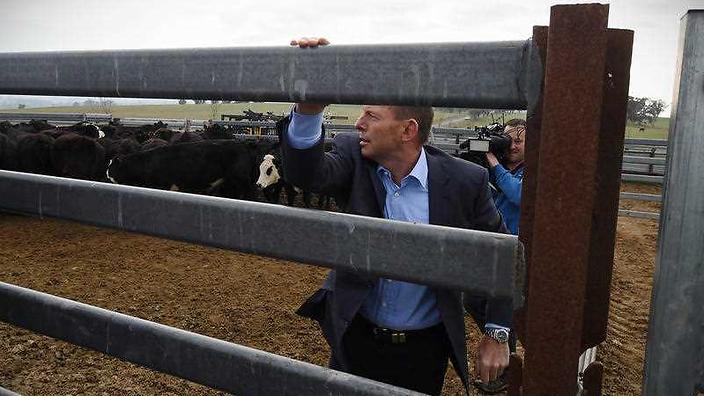-
Tips for becoming a good boxer - November 6, 2020
-
7 expert tips for making your hens night a memorable one - November 6, 2020
-
5 reasons to host your Christmas party on a cruise boat - November 6, 2020
-
What to do when you’re charged with a crime - November 6, 2020
-
Should you get one or multiple dogs? Here’s all you need to know - November 3, 2020
-
A Guide: How to Build Your Very Own Magic Mirror - February 14, 2019
-
Our Top Inspirational Baseball Stars - November 24, 2018
-
Five Tech Tools That Will Help You Turn Your Blog into a Business - November 24, 2018
-
How to Indulge on Vacation without Expanding Your Waist - November 9, 2018
-
5 Strategies for Businesses to Appeal to Today’s Increasingly Mobile-Crazed Customers - November 9, 2018
Crackdown on activist lawsuits could aid Shenhua mine
Australia plans to change the law to stop environmental groups from launching “endless legal sabotage” against developments, Prime Minister Tony Abbott said on Wednesday after a court in August blocked a huge India-backed mine.
Advertisement
‘This government will repeal section 487.2 of the EPBC (Environment Protection and Biodiversity Conservation) Act which gives activists the standing to sabotage decisions, ‘ Prime Minister Tony Abbott told parliament on Tuesday.
The Shenhua Watermark open cut mine in NSW on the Liverpool Plains has also been delayed due to ongoing concerns about irreversible damage to water and environmental assets including from leading farming groups.
The law requires that the Minister considers these conservation advices so that he understands the impacts of the decision on matters of National Environmental Significance.
Most green groups have an ecological interest on behalf of all those Australians who otherwise do not have the means or know-how to protect nature from damaging development and government mistakes.
“What’s quite clear from that [Adani] judgment is the Government was not able to apply its own laws properly”.
“This is a very important project, not just for Australia, but for the wider world”, said Abbott, “and if we get to the stage where the rules are such that projects like this can be endlessly frustrated, that’s risky for the country and it’s tragic for the wider world”.
He said the laws were working “exactly as they should”.
According to Abbott, the Adani group has already invested almost $3 billion in Australia in preparation for the project that is expected to create 10,000 jobs in Queensland and other parts of Australia.
Mr Macfarlane said the recent court win was just the start of a “very well orchestrated and highly funded campaign that will see the end of coal-mining development in Australia”.
The analysis showed of about 5500 projects that went through the approvals system since 2000, only 33 were taken to court by third parties and only six were “legally successful”. There may be a case to increase those deterrents, but that is altogether different to removing the rights of groups of citizens to challenge bad decisions by blundering ministers.
The Abbott government may choose to view little skinks and elusive snakes as expendable when it comes to coal deposits, but it is imperative that governments and public authorities are held accountable for every decision they make.
But Mr Cousins said coal jobs were disappearing.
“Farming and agriculture – with a lower exchange rate and with the Free Trade Agreements – has a bright future so it’s important that the government sticks to a plan instead of just coming up with this random piece of legislation when they’re under a lot of pressure”.
“In fact, what we’ve got is pretty weak environmental laws. The problem is not the community, it is the Government’s incompetence, and its total lack of empathy of effectively protecting the environment”, said Kennedy in a press statement.
Advertisement
The provisions of the law in question were introduced by the Howard government in 1999 and relate to who has the right to mount a legal challenge against a ministerial approval.





























